
The Enchanting Pays Basque: France's Best-Kept Secret
Nestled between the Pyrenees Mountains and the Atlantic Ocean, the Pays Basque in France is a captivating region that boasts a unique blend of French and Spanish cultures. This picturesque area is renowned for its charming villages, stunning landscapes, and vibrant traditions. From the coastal beauty of Biarritz to the rural charm of Espelette, every corner of the Pays Basque offers something special. The Pays Basque is a paradise for outdoor enthusiasts. The region's diverse landscapes provide ample opportunities for hiking, surfing, and exploring nature. The Pyrenees offer breathtaking views and challenging trails, while the Atlantic coast is famous for its world-class surf spots. The scenic beauty of the area is complemented by its rich cultural heritage, with festivals, traditional music, and dance playing a central role in local life. Gastronomy is another highlight of the Pays Basque. The region is famous for its delicious cuisine, which includes specialties like Basque cake, Espelette pepper, and fresh seafood. The local markets are a feast for the senses, offering a wide variety of regional products and giving visitors a taste of the authentic Basque lifestyle. Whether you are a foodie, an adventurer, or a culture enthusiast, the Pays Basque in France is a destination that promises unforgettable experiences.
Local tips in Pays Basque
- Visit Biarritz for its beautiful beaches and vibrant nightlife.
- Explore Espelette, famous for its red peppers and charming village atmosphere.
- Take a hike in the Pyrenees for breathtaking views and outdoor adventure.
- Try the local cuisine, especially the seafood and traditional Basque dishes.
- Attend a Basque festival to experience the region's rich cultural heritage.
The Enchanting Pays Basque: France's Best-Kept Secret
Nestled between the Pyrenees Mountains and the Atlantic Ocean, the Pays Basque in France is a captivating region that boasts a unique blend of French and Spanish cultures. This picturesque area is renowned for its charming villages, stunning landscapes, and vibrant traditions. From the coastal beauty of Biarritz to the rural charm of Espelette, every corner of the Pays Basque offers something special. The Pays Basque is a paradise for outdoor enthusiasts. The region's diverse landscapes provide ample opportunities for hiking, surfing, and exploring nature. The Pyrenees offer breathtaking views and challenging trails, while the Atlantic coast is famous for its world-class surf spots. The scenic beauty of the area is complemented by its rich cultural heritage, with festivals, traditional music, and dance playing a central role in local life. Gastronomy is another highlight of the Pays Basque. The region is famous for its delicious cuisine, which includes specialties like Basque cake, Espelette pepper, and fresh seafood. The local markets are a feast for the senses, offering a wide variety of regional products and giving visitors a taste of the authentic Basque lifestyle. Whether you are a foodie, an adventurer, or a culture enthusiast, the Pays Basque in France is a destination that promises unforgettable experiences.
When is the best time to go to Pays Basque?
Iconic landmarks you can’t miss
Rocher de la Vierge
Discover the stunning Rocher de la Vierge in Biarritz, a captivating coastal landmark featuring breathtaking views and rich cultural history.
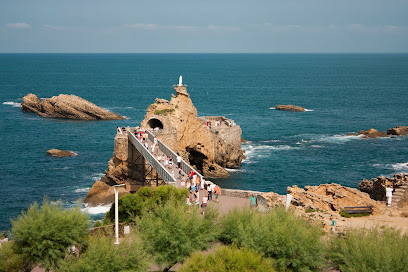
Biarritz Aquarium
Explore the Biarritz Aquarium, where marine wonders come alive in a captivating setting along the stunning French coast.

Cathédrale Sainte-Marie de Bayonne
Explore the breathtaking Cathédrale Sainte-Marie de Bayonne, a Gothic marvel that reflects the rich history and culture of the Basque region.
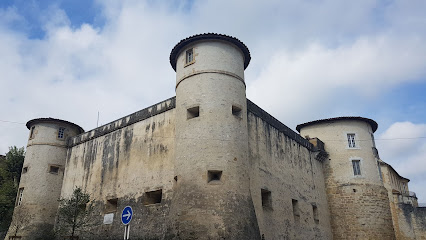
Phare de Biarritz
Discover the breathtaking views and maritime history at the iconic Phare de Biarritz, a must-visit scenic spot along the Basque coast.
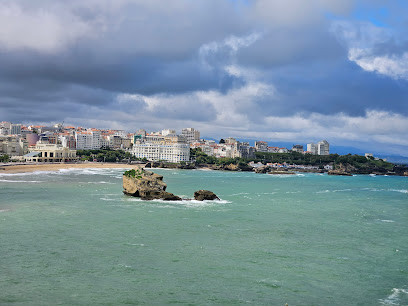
Château d'Abbadie
Explore the enchanting Château d'Abbadie, where history, architecture, and breathtaking views converge on the Basque coastline.
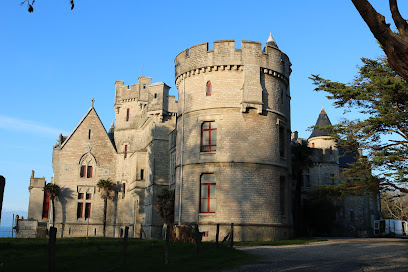
Grottes de Sare
Explore the Grottes de Sare, a breathtaking historical landmark featuring stunning caves and rich cultural heritage in the heart of the Basque Country.
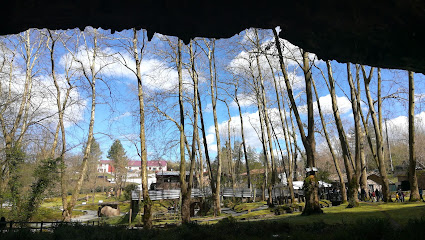
City Ocean
Uncover the marine mysteries at City Ocean in Biarritz, a family-friendly museum showcasing the beauty and importance of our oceans.
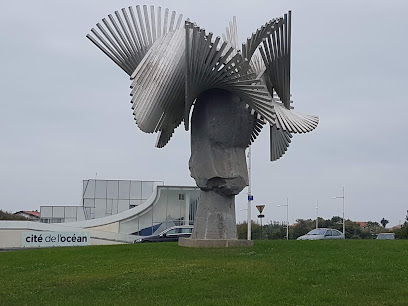
House-museum of Edmond Rostand
Explore the House-Museum of Edmond Rostand in Cambo-les-Bains, a literary haven celebrating the life and works of the iconic French playwright.
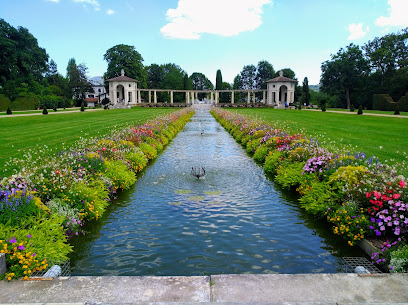
Église Saint-Jean-Baptiste
Experience the architectural beauty and historical significance of Église Saint-Jean-Baptiste in the heart of Saint-Jean-de-Luz, a captivating tourist attraction.
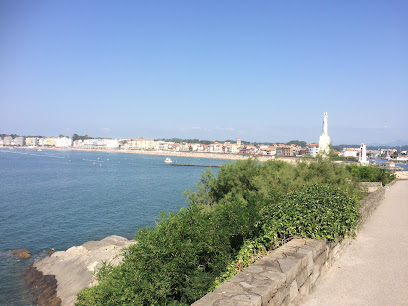
Isturitz and Oxocelhaya
Discover the ancient beauty of Isturitz and Oxocelhaya Caves, where history meets stunning natural formations in the heart of the Basque Country.
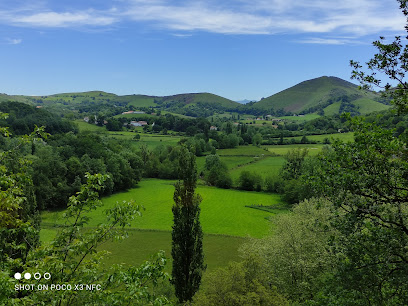
Musée Basque
Explore the rich heritage of the Basque region at Musée Basque, a cultural gem in Bayonne featuring immersive exhibits and vibrant local traditions.
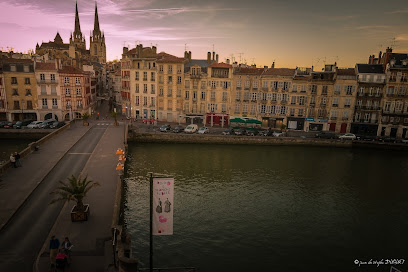
The Basque Corniche
Explore the breathtaking Basque Corniche, a historical observation deck with stunning ocean views and rich cultural significance in the heart of the Basque Country.
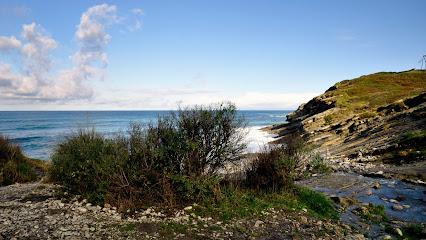
Château d'Urtubie - visites, parc et activités pour familles au Pays Basque
Explore the enchanting Château d'Urtubie, a captivating castle offering history, culture, and family-friendly activities in the Basque Country.
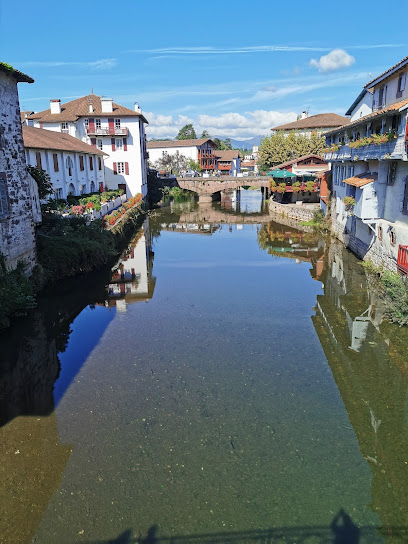
Château-Vieux - Gaztelu Zaharra
Discover the rich history of Château-Vieux - Gaztelu Zaharra, a medieval fortress in Bayonne, offering breathtaking views and cultural insights.
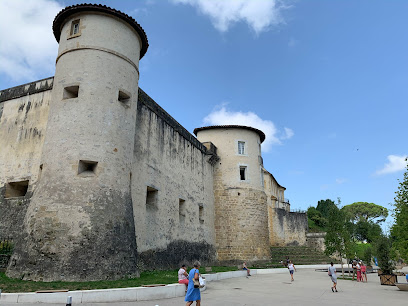
Château de Marracq
Explore the rich history and stunning architecture of Château de Marracq in Bayonne, a hidden gem for culture and history enthusiasts.
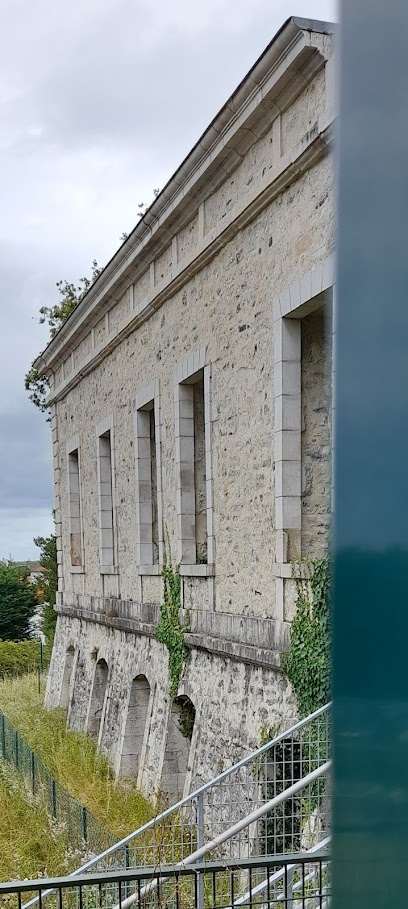
Unmissable attractions to see
Grottes de Sare
Explore the breathtaking Grottes de Sare: a stunning convergence of natural beauty and rich heritage in the heart of the Basque Country.
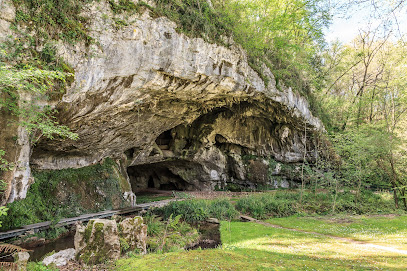
Église Saint-Jean-Baptiste
Explore the stunning Église Saint-Jean-Baptiste in Saint-Jean-de-Luz, a blend of exquisite architecture and rich cultural heritage in the heart of the Basque Country.
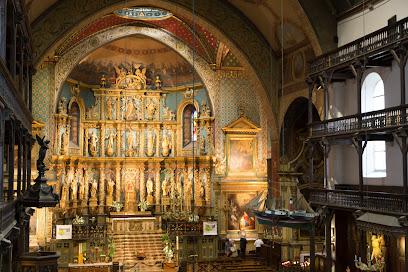
Caves of Urdazubi / Urdax
Explore the breathtaking beauty and rich history of the Caves of Urdazubi in Navarre, Spain, a natural wonder that enchants every visitor.
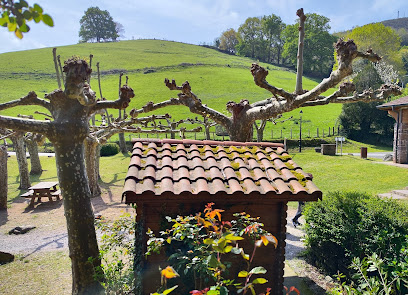
Musée Basque
Discover Basque culture and history at Bayonne's Musée Basque, showcasing traditions, art, and artifacts in a historic setting.
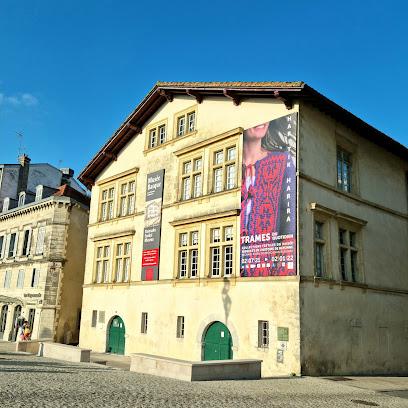
Isturitz and Oxocelhaya
Discover the breathtaking Isturitz and Oxocelhaya Caves, where ancient history meets stunning natural beauty in Saint-Martin-d'Arberoue.
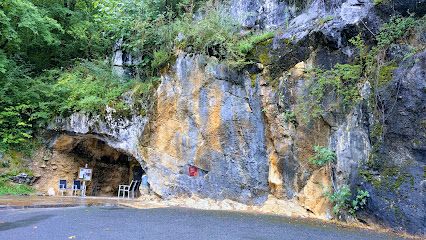
Musée Basque
Explore Basque culture and Bayonne's history at this premier ethnographic museum, currently undergoing renovations until March 2025.
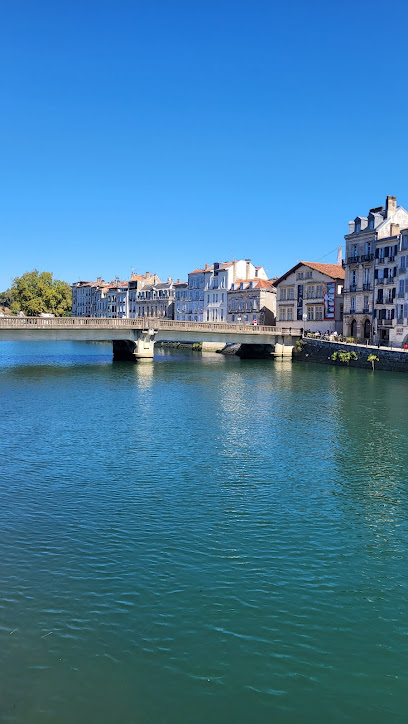
Animal Park Etxola
Discover the enchanting Animal Park Etxola in Sare, a perfect blend of education and adventure for visitors of all ages.
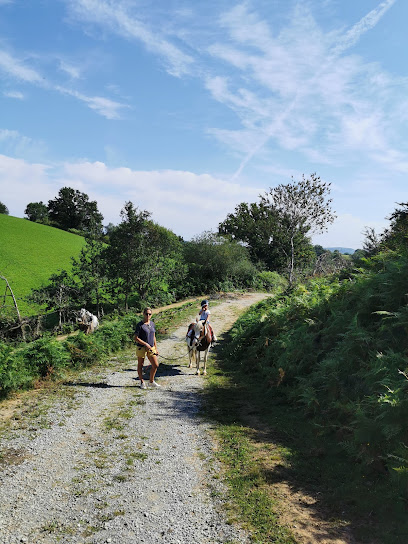
Le Musée du Gâteau Basque
Explore the delectable world of Basque cake at Le Musée du Gâteau Basque, where history and flavor come together in the heart of Sare.
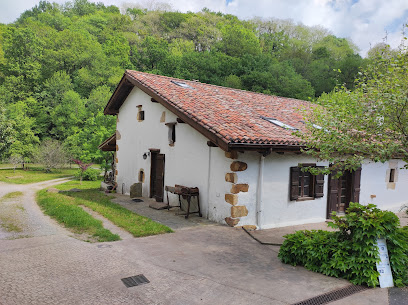
Château d'Urtubie - visites, parc et activités pour familles au Pays Basque
Discover the captivating beauty and rich heritage of Château d'Urtubie, a historic castle in the heart of the Basque Country, perfect for families and history lovers.
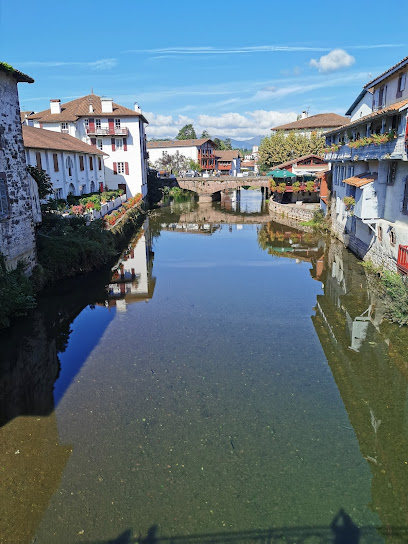
Grande Plage
Discover the beauty and excitement of Grande Plage, Biarritz's stunning public beach, perfect for relaxation, adventure, and unforgettable coastal views.
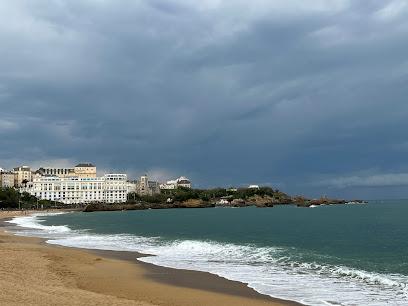
TTIKI LEKU
A Basque Country family amusement park with mini-golf, zip lines, water games and the unique 'Parcabout' experience.
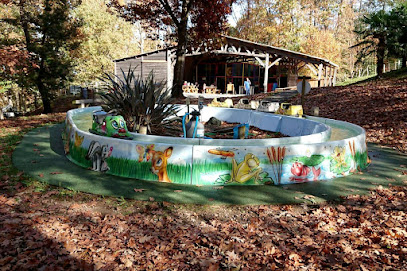
Arpea Cave
Explore Arpea Cave: A breathtaking natural attraction in Estérençuby, France, known for its stunning rock formations and rich folklore.
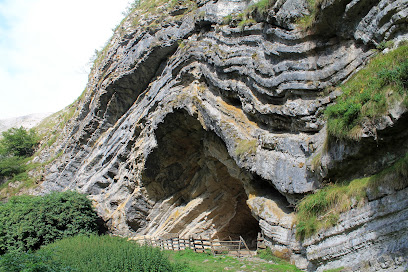
San Nikolas gate
Step through time at Hondarribia's San Nikolas Gate, a beautifully restored 16th-century entrance to the city's historic heart.
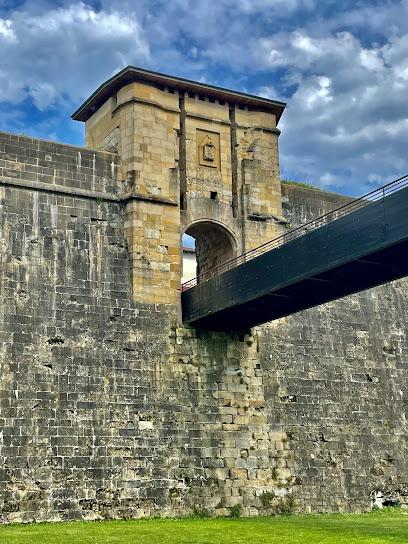
Notre-Dame Gate
Step through history at the Notre-Dame Gate, a majestic entrance to the charming Basque town of Saint-Jean-Pied-de-Port, a key Camino de Santiago landmark.
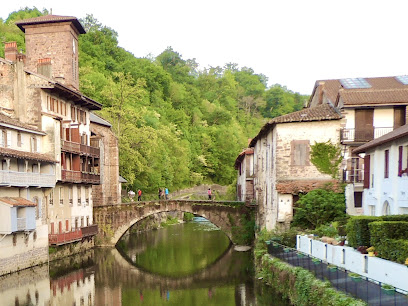
Ortillopitz, la maison basque de Sare
Discover Basque heritage at Ortillopitz, a beautifully preserved 17th-century farmhouse offering a glimpse into traditional rural life in Sare.
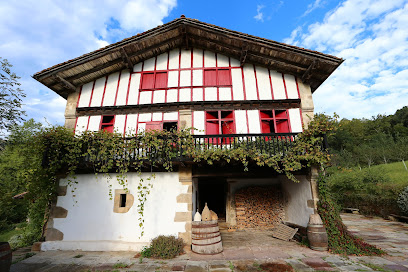
Essential places to dine
Chez Txotx
Discover authentic Basque cuisine and exquisite tapas at Chez Txotx in Bayonne - a must-visit for food enthusiasts seeking rich flavors.
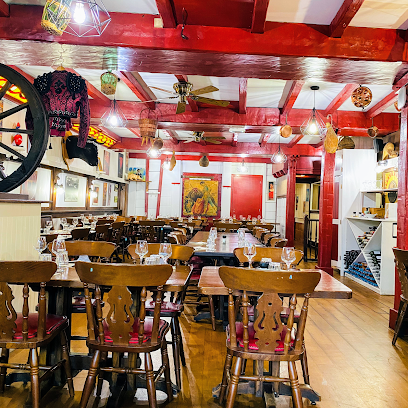
La Table Sébastien Gravé
Discover La Table Sébastien Gravé in Bayonne: An exceptional dining experience celebrating French culinary traditions with local flair.
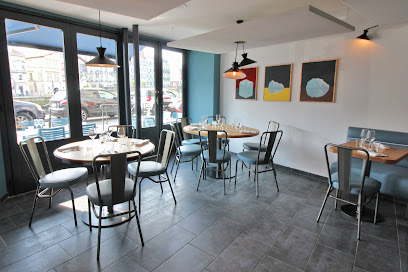
Au Bouchon Basque Le Resto
Savor authentic French and Basque cuisine at Au Bouchon Basque Le Resto in Bayonne - a must-visit culinary destination for tourists.
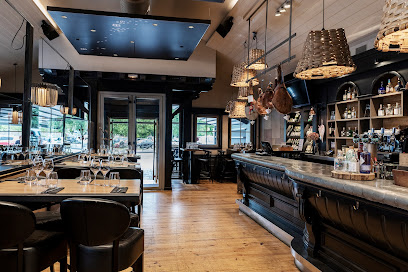
LTB-La Table Basque
Experience authentic Basque and French cuisine at LTB-La Table Basque in Biarritz - where every dish tells a story.
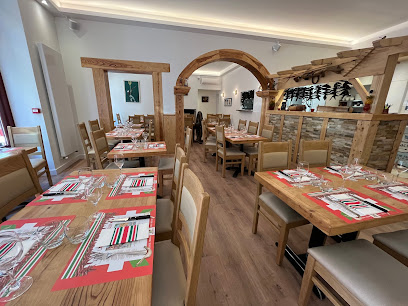
Les Frères Ibarboure - Table et Hôtel
Discover Les Frères Ibarboure: A luxurious hotel and haute French restaurant offering exceptional dining experiences in beautiful Bidart.
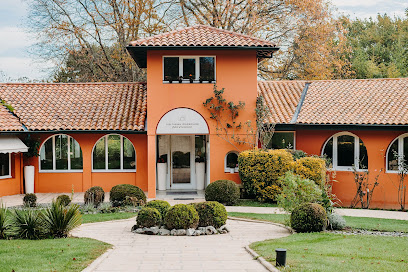
Auberge 22
Experience authentic French cuisine at Auberge 22, where exquisite flavors meet warm hospitality in the heart of Biarritz.
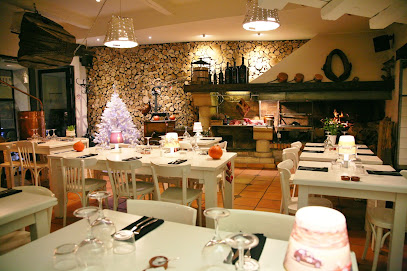
Restaurant Le Chistera
Experience exquisite French cuisine at Restaurant Le Chistera in Bayonne – where tradition meets contemporary flair.
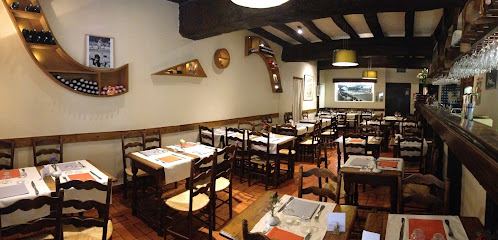
La Tantina de Burgos
Discover authentic Basque cuisine at La Tantina de Burgos in Biarritz – where French elegance meets Spanish zest in every dish.
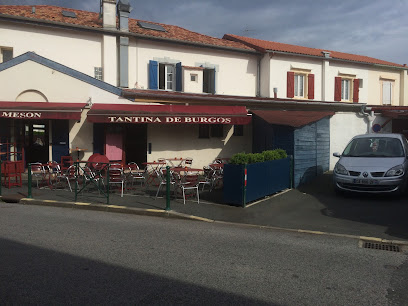
Arroenia - cuisine Basque
Discover authentic Basque flavors at Arroenia – where every dish tells a story of tradition and culinary excellence.
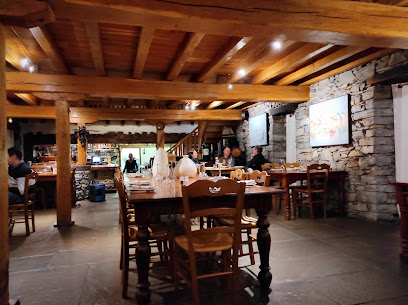
Restaurant Hernani
Experience the flavors of Basque and French cuisine at Restaurant Hernani in Biarritz - a must-visit culinary destination for every traveler.
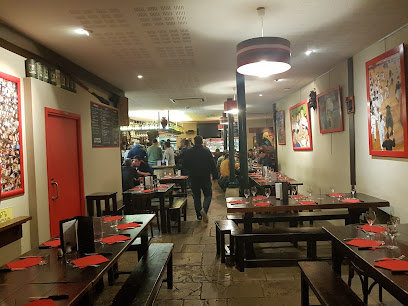
Restaurant La Goulue
Experience exquisite Haute French cuisine at Restaurant La Goulue in Biarritz - where tradition meets innovation in every dish.
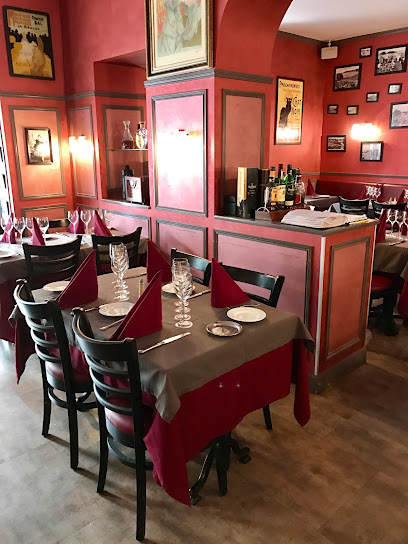
Le Kaiku
Experience exquisite Basque cuisine at Le Kaiku, where fine dining meets coastal charm in Saint-Jean-de-Luz.
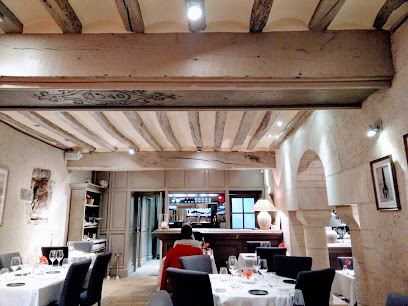
Restaurant Oillarburu
Experience authentic Basque cuisine at Restaurant Oillarburu in Saint-Jean-Pied-de-Port - where tradition meets taste.
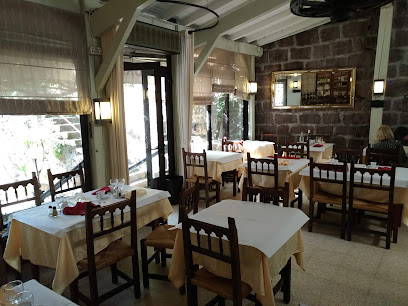
Le Crabe Tambour
Discover the taste of the sea at Le Crabe Tambour – where fresh seafood meets Basque culinary traditions in beautiful Biarritz.
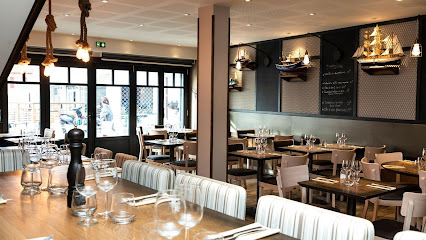
L'Entre Deux
Experience authentic French cuisine at L'Entre Deux in Biarritz – where every meal tells a story through exquisite flavors.
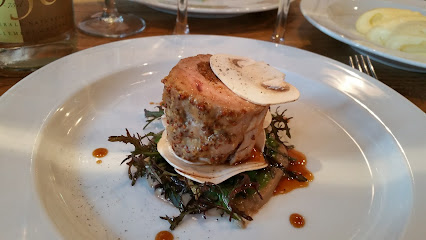
Markets, malls and hidden boutiques
La Topaze
Discover La Topaze, Bayonne's vibrant rock shop offering exquisite jewelry and unique musical instruments, a true treasure for every visitor.
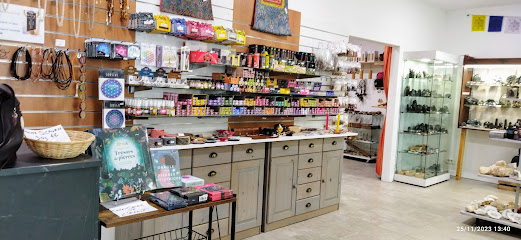
Boutique 64 ST-JEAN-DE-LUZ
Boutique 64 in Saint-Jean-de-Luz: Where Timeless Style Meets Coastal Charm in Men's Fashion.
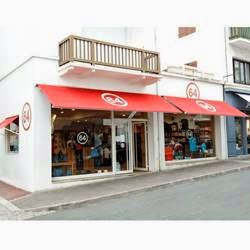
Boutique 64
Discover unique fashion finds at Boutique 64, a chic clothing store in the heart of Biarritz, perfect for stylish souvenirs.
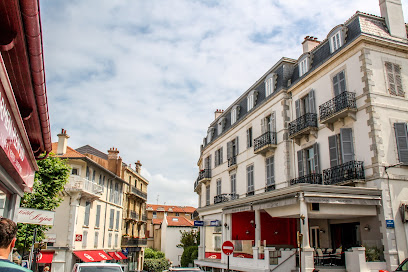
Boutique du Pelerin - Pilgrim's shop
Your essential stop in Saint-Jean-Pied-de-Port for quality hiking gear and pilgrimage souvenirs on the Camino de Santiago.
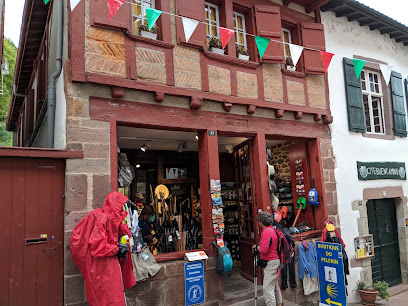
Les Bernadettes Concept Store
Explore Les Bernadettes Concept Store in Anglet for chic clothing and fashionable accessories, celebrating contemporary French style in a vibrant atmosphere.
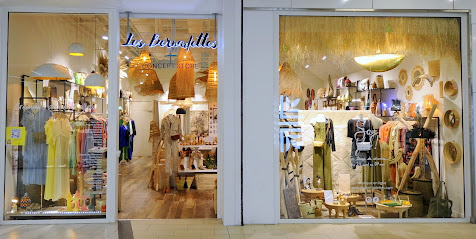
Boutique 64 BAYONNE
Discover the unique styles of Boutique 64 in Bayonne, where local culture and contemporary fashion blend seamlessly.
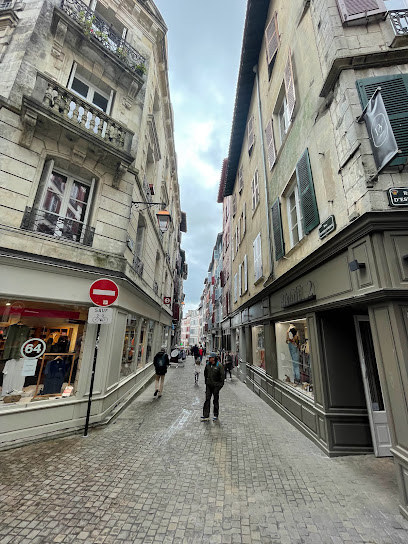
Colibri
Explore the charm of Biarritz at Colibri, your go-to souvenir store for unique gifts and local treasures.
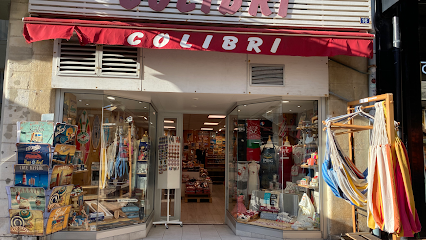
Le Bazar Basque
Explore the essence of the Basque culture at Le Bazar Basque, where unique gifts and gourmet delights await every visitor.
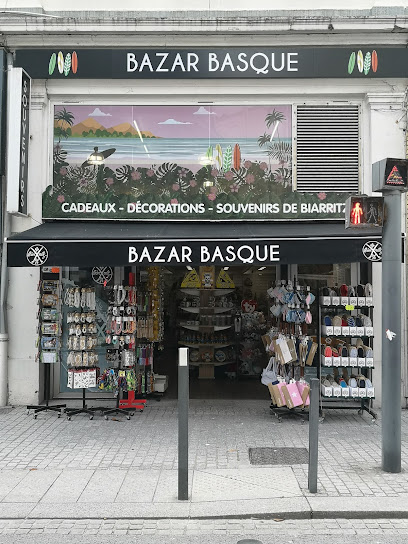
La Nounourserie
Discover La Nounourserie in Biarritz, the enchanting toy store filled with unique gifts and delightful toys for children of all ages.
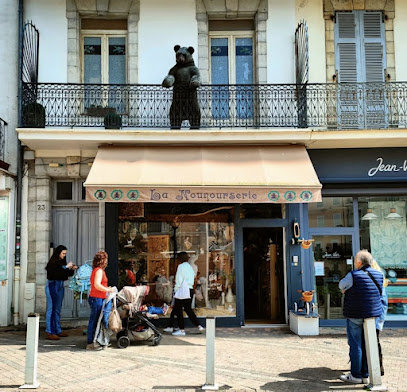
Quatre Plus Trois
Explore Quatre Plus Trois in Bayonne for a unique selection of stylish menswear that combines quality and contemporary design.
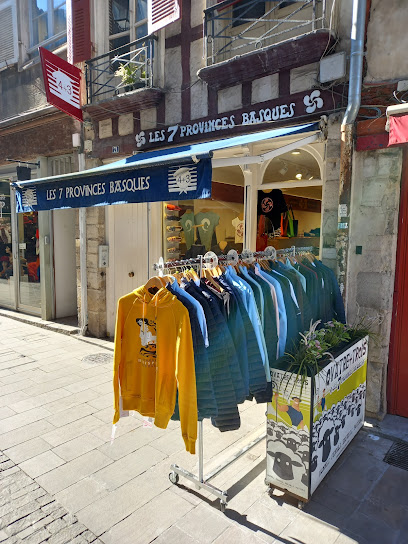
L' ANNEXE CONCEPT STORE BIARRITZ
Explore L' ANNEXE CONCEPT STORE in Biarritz for unique gifts and local treasures that capture the essence of this charming coastal city.
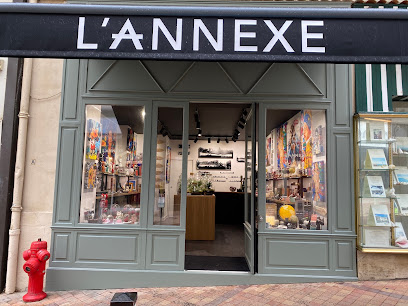
MAISON CAVIER 1859
Shop at MAISON CAVIER 1859 in Saint-Jean-Pied-de-Port for a unique selection of men's fashion that combines tradition and contemporary style.
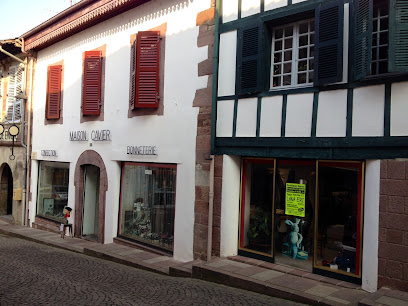
Autour Du Store
Discover exquisite window treatments and stylish garden furniture at Autour Du Store, a must-visit destination in the heart of Bayonne.
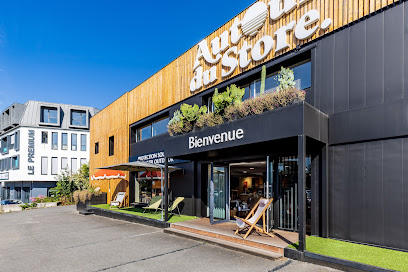
NATACHA Boutique
Discover the charm of NATACHA Boutique in Biarritz, offering stylish women's clothing, chic fashion accessories, and unique candles for a perfect shopping experience.
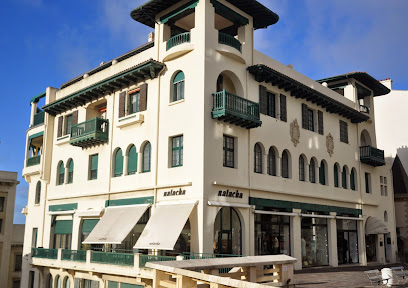
Akiloukap, Savons et Textiles du Pays Basque
Discover the essence of Basque craftsmanship at Akiloukap, where local textiles and beauty products come together in a charming shopping experience.
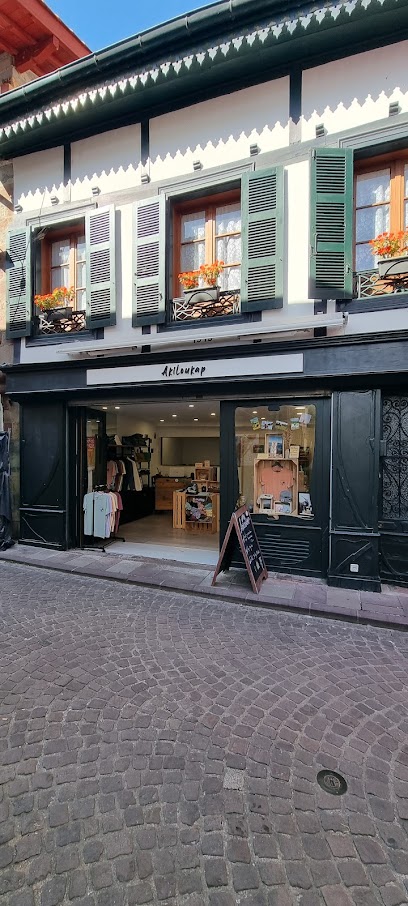
Essential bars & hidden hideouts
Le Bar Jean
Experience the vibrant culinary scene of Biarritz at Le Bar Jean, a lively tapas bar offering delicious small plates and a warm atmosphere.
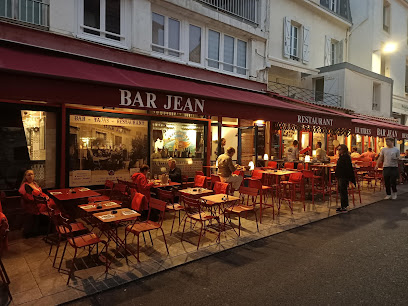
Pub du Corsaire
Discover the charm of Saint-Jean-de-Luz at Pub du Corsaire, where authentic tapas and a lively atmosphere await every visitor.
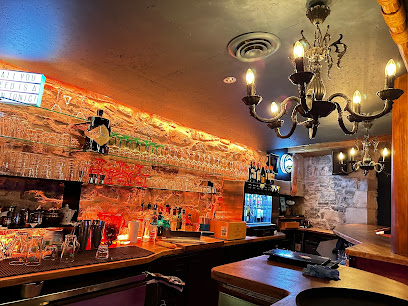
La Tireuse
Experience the culinary delights of Biarritz at La Tireuse, a charming gastropub offering a fusion of local flavors and a vibrant atmosphere.
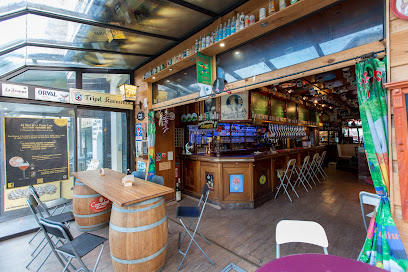
Olatua Biarritz
Discover Olatua Biarritz: A vibrant bar serving exquisite tapas and local cuisine in the heart of Biarritz's scenic Jardins de l'Atalaye.
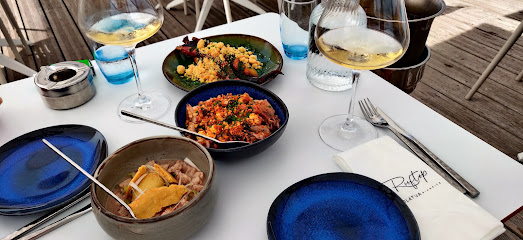
Le Newquay
Discover the charm of Biarritz at Le Newquay, a lively Irish pub offering refreshing drinks, delicious food, and a vibrant atmosphere.
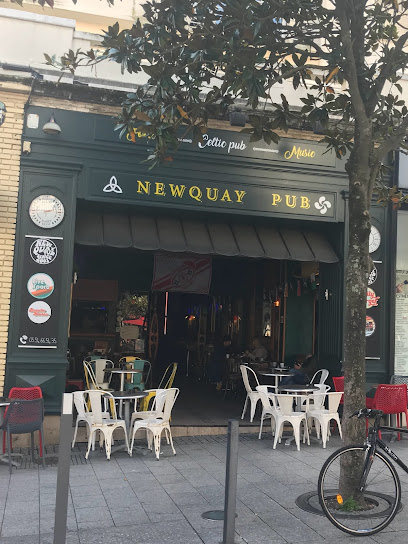
Le Before Basque - Bar de nuit & Discothèque
Discover the vibrant nightlife at Le Before Basque in Bayonne, where music, dancing, and Basque culture come alive for an unforgettable night.
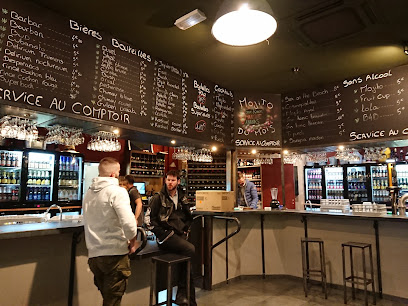
Le Bar Basque Guéthary
Discover the vibrant flavors of the Basque region at Le Bar Basque Guéthary, where traditional tapas meet a modern dining experience.
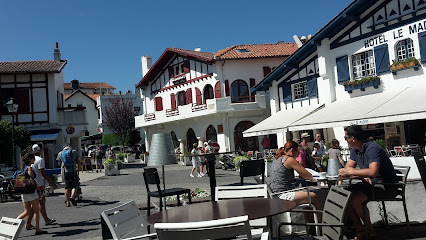
Le Bar Basque
Experience the coastal charm of Le Bar Basque in Saint-Jean-de-Luz, where local flavors and vibrant atmosphere come together.
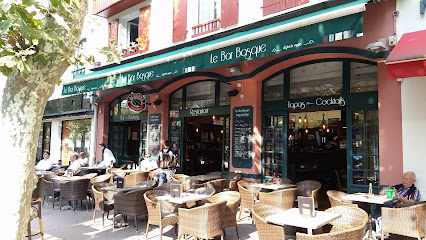
Le bar basque
Discover the vibrant flavors and culture of Basque country at Le Bar Basque, a must-visit bar and restaurant in Bayonne.
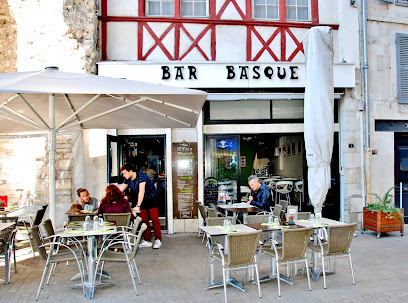
Bar de La Plage
Experience the vibrant nightlife at Bar de La Plage, Biarritz's premier cocktail bar with stunning ocean views and a lively atmosphere.
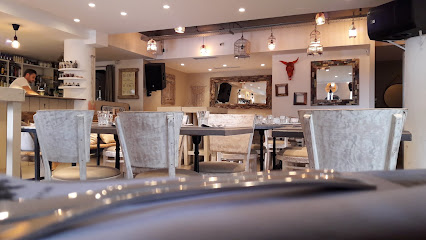
The Bathers — The Rooftop Bar
Discover the perfect blend of relaxation and stunning views at The Bathers — The Rooftop Bar in Biarritz, where the Atlantic meets delightful drinks.
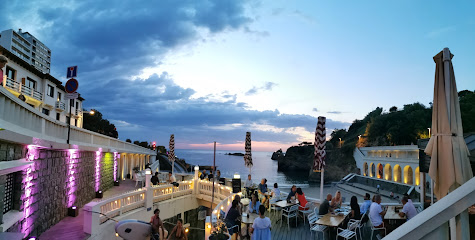
Charlie's Bar
Experience the vibrant nightlife of Biarritz at Charlie's Bar, a cocktail haven serving exquisite drinks and delectable tapas in a lively atmosphere.
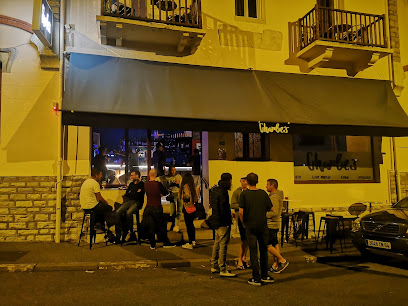
Bar - Trinquet Gantxiki
Discover the authentic Basque experience at Trinquet Gantxiki, a cozy bar in Saint-Pée-sur-Nivelle known for its friendly vibe and local drinks.
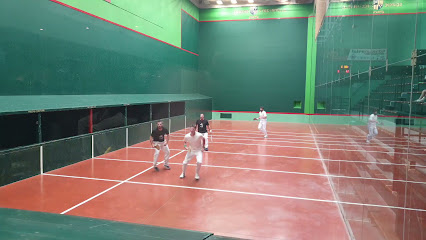
Bar-Epicerie Bidegaray S
Experience the essence of Basque culture at Bar-Epicerie Bidegaray S, where local flavors and warm hospitality come together.
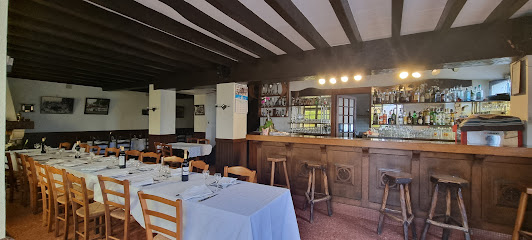
Ajoupa rhumerie
Discover the vibrant flavors of the Caribbean at Ajoupa Rhumerie, a unique cocktail bar and Creole restaurant in Biarritz.
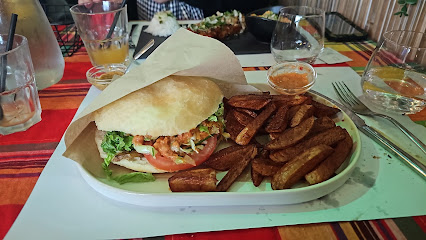
Local Phrases about Pays Basque
-
- HelloKaixo
[ka-ee-sho] - GoodbyeAgur
[a-goor] - YesBai
[bye] - NoEz
[ez] - Please/You're welcomeMesedez
[meh-seh-dez] - Thank youEskerrik asko
[es-ke-rik as-ko] - Excuse me/SorryBarkatu
[bar-ka-too] - How are you?Zer moduz?
[zehr mo-dooz] - Fine. And you?Ondo. Eta zu?
[on-do. eh-ta zoo] - Do you speak English?Ingelesa hitz egiten duzu?
[in-ge-le-sa hitz eh-gee-ten doo-zoo] - I don't understandEz dut ulertzen
[ez doot u-lehr-tzen]
- HelloKaixo
-
- I'd like to see the menu, pleaseMenua ikusi nahi nuke, mesedez
[me-nu-a ee-koo-see na-hee noo-ke, meh-seh-dez] - I don't eat meatEz jaten nahi dut haragia
[ez ja-ten na-hee doot ha-ra-gia] - Cheers!Topa!
[toh-pa] - I would like to pay, pleaseOrdaintzeko nahi nuke, mesedez
[or-dain-tze-ko na-hee noo-ke, meh-seh-dez]
- I'd like to see the menu, pleaseMenua ikusi nahi nuke, mesedez
-
- Help!Lagundu!
[la-gun-doo] - Go away!Joan zaitez!
[jo-an zai-tez] - Call the Police!Deitu poliziari!
[dei-tu po-li-zi-a-ri] - Call a doctor!Deitu medikuari!
[dei-tu me-di-kua-ri] - I'm lostNirea galdu naiz
[ni-re-a ga-ldu na-iz] - I'm illGaixo nago
[ga-i-sho na-go]
- Help!Lagundu!
-
- I'd like to buy...Erosi nahi nuke...
[eh-ro-see na-hee noo-ke] - I'm just lookingBakarrik begiratzen
[ba-ka-rrick beh-gee-rat-zen] - How much is it?Zenbat balio du?
[zen-bat ba-li-o doo] - That's too expensiveDemasiado garesti da
[de-ma-sia-do ga-res-tee da] - Can you lower the price?Prezioa jaitsi dezakezu?
[pre-zi-oa hai-tsi de-za-ke-zoo]
- I'd like to buy...Erosi nahi nuke...
-
- What time is it?Zer ordu da?
[zehr or-du da] - It's one o'clockBatetik
[ba-te-tik] - Half past (10)Hamarretik erdi aldera
[ha-mar-re-tik er-di al-de-ra] - MorningGoizean
[goi-ze-an] - AfternoonArratsaldean
[a-rat-sal-de-an] - EveningArratsaldean
[a-rat-sal-de-an] - YesterdayAtzo
[at-so] - TodayGaur
[gaur] - TomorrowBihar
[bi-har] - 1Bat
[bat] - 2Bi
[bee] - 3Hiru
[hi-ru] - 4Lau
[lau] - 5Bost
[bost] - 6Sei
[sei] - 7Zazpi
[zaz-pi] - 8Zortzi
[zor-tzi] - 9Bederatzi
[be-de-ra-tzi] - 10Hamar
[ha-mar]
- What time is it?Zer ordu da?
-
- Where's a/the...?Non dago...?
[non da-go] - What's the address?Zer da helbidea?
[zehr da hel-bi-de-a] - Can you show me (on the map)?Erakutsi al zentzu?
[e-ra-kut-si al zen-tzu] - When's the next (bus)?Noiz dator hurrengoa (autobusa)?
[no-iz da-tor ur-ren-go-a (au-to-bu-sa)] - A ticket (to ....)Billete bat (....ra)
[bi-ye-te bat (ra)]
- Where's a/the...?Non dago...?
History of Pays Basque
-
The Pays Basque, or Basque Country, boasts some of the earliest human settlements in Europe. Evidence of this is found in the numerous prehistoric caves scattered throughout the region. The most notable is the Isturitz and Oxocelhaya caves, where artifacts such as stone tools, carvings, and ancient art reveal a thriving community dating back to the Upper Paleolithic period.
-
During the Roman Empire, the Pays Basque was part of the province of Aquitania. The Romans introduced new technologies and infrastructure, including roads and bridges, which facilitated trade and communication. However, the rugged terrain and fiercely independent spirit of the Basque people ensured that Roman influence remained limited.
-
In the Middle Ages, the Pays Basque was part of the Kingdom of Navarre, a significant medieval state. The region's strategic location made it a vital area for trade and military campaigns. Castles and fortifications, such as the Château d'Abbadie in Hendaye, reflect this turbulent period. The Basque language and culture flourished during this time, laying the foundation for the region's strong sense of identity.
-
From the 16th century onwards, Basque sailors became renowned for their whaling and fishing prowess. They ventured as far as Newfoundland and Iceland, establishing settlements and trade routes. The port towns of Saint-Jean-de-Luz and Ciboure became bustling centers of maritime activity. This seafaring heritage is still celebrated today, with local festivals and museums dedicated to the Basque maritime tradition.
-
The French Revolution brought significant changes to the Pays Basque. The region was integrated into the newly formed French Republic, and the traditional feudal system was dismantled. Despite these changes, the Basque people retained their distinct cultural identity, continuing to speak the Basque language and maintain their unique customs and traditions.
-
The late 19th and early 20th centuries saw the rise of Basque nationalism. Influenced by broader European nationalist movements, Basque intellectuals and activists sought to preserve and promote Basque culture, language, and autonomy. This period saw the establishment of cultural organizations and the publication of Basque literature and newspapers.
-
During World War II, the Pays Basque became a focal point for resistance against Nazi occupation. The region's mountainous terrain provided a refuge for resistance fighters and facilitated clandestine activities. Many Basques played a crucial role in supporting Allied operations, including aiding the escape of downed airmen and smuggling intelligence across the border.
-
In recent decades, the Pays Basque has experienced a cultural renaissance. Efforts to preserve the Basque language, Euskara, have intensified, with bilingual education programs and cultural initiatives. Festivals such as Fêtes de Bayonne and traditional sports like pelota and Basque rural sports continue to thrive, showcasing the vibrant and enduring Basque culture.
Pays Basque Essentials
-
Pays Basque in France is accessible by multiple modes of transportation. The nearest major airport is Biarritz Pays Basque Airport, which is well-connected to various European cities. From the airport, you can take a taxi, rent a car, or use public transport to reach your destination within the region. Alternatively, the region is well-served by trains, with major stations in Bayonne and Biarritz connected to the French high-speed TGV network. For those driving, the A63 highway runs through the region, making it easily accessible by car.
-
Within Pays Basque, transportation options include local buses, regional trains, taxis, and car rentals. The local bus network, Chronoplus, operates in and around major towns like Bayonne, Biarritz, and Anglet. Regional trains connect smaller towns and offer scenic routes through the region. Taxis are available but can be expensive for long distances. Renting a car is a convenient option for exploring the more remote areas at your own pace.
-
The official currency in France is the Euro (EUR). Credit and debit cards are widely accepted in hotels, restaurants, and shops. However, it is advisable to carry some cash for smaller establishments, markets, and rural areas. ATMs are readily available in towns and cities. Contactless payments and mobile payment options like Apple Pay and Google Pay are also commonly accepted.
-
Pays Basque is generally a safe destination for tourists. However, as with any travel destination, it is important to take standard safety precautions. Avoid walking alone at night in unfamiliar areas and keep an eye on your belongings in crowded places. While there are no specific high-crime areas targeting tourists, it is always best to stay vigilant and aware of your surroundings.
-
In case of emergency, dial 112 for immediate assistance, which is the European emergency number. Local police stations and medical facilities are available in towns like Bayonne and Biarritz. It is recommended to have travel insurance that covers medical emergencies. Pharmacies are widely available for minor health issues, and some pharmacists can provide basic medical advice.
-
Fashion: Do dress casually but smartly; avoid overly revealing clothing, especially in religious sites. Religion: Do respect local customs and traditions, particularly in churches. Cover your shoulders and knees when entering religious sites. Public Transport: Do be respectful on public transport. Offer your seat to elderly passengers and do not eat or drink on buses and trains. Greetings: Do greet people with a friendly 'Bonjour' and a handshake. Eating & Drinking: Do try local Basque cuisine and wines. Don't rush meals; dining is often a leisurely and social affair.
-
To experience Pays Basque like a local, visit the traditional markets in towns like Saint-Jean-de-Luz and Bayonne, where you can buy fresh produce and local delicacies. Engage with locals, as they are often friendly and willing to share stories about their culture and history. Don't miss the local festivals, such as the Fêtes de Bayonne, to fully immerse yourself in Basque culture. For outdoor enthusiasts, hiking in the Pyrenees or surfing on the coast are must-do activities.
Trending Landmarks in Pays Basque
-
Rocher de la Vierge
-
Biarritz Aquarium
-
Cathédrale Sainte-Marie de Bayonne
-
Phare de Biarritz
-
Château d'Abbadie
-
Grottes de Sare
-
City Ocean
-
House-museum of Edmond Rostand
-
Église Saint-Jean-Baptiste
-
Isturitz and Oxocelhaya
-
Musée Basque
-
The Basque Corniche
-
Château d'Urtubie - visites, parc et activités pour familles au Pays Basque
-
Château-Vieux - Gaztelu Zaharra
-
Château de Marracq
Nearby Cities to Pays Basque
-
Things To Do in San Sebastián
-
Things To Do in Lourdes
-
Things To Do in Bilbao
-
Things To Do in Huesca
-
Things To Do in Zaragoza
-
Things To Do in Bordeaux
-
Things To Do in Santander
-
Things To Do in Burgos
-
Things To Do in Toulouse
-
Things To Do in Arinsal
-
Things To Do in Lleida
-
Things To Do in El Serrat
-
Things To Do in La Massana
-
Things To Do in Ordino
-
Things To Do in Andorra la Vella












